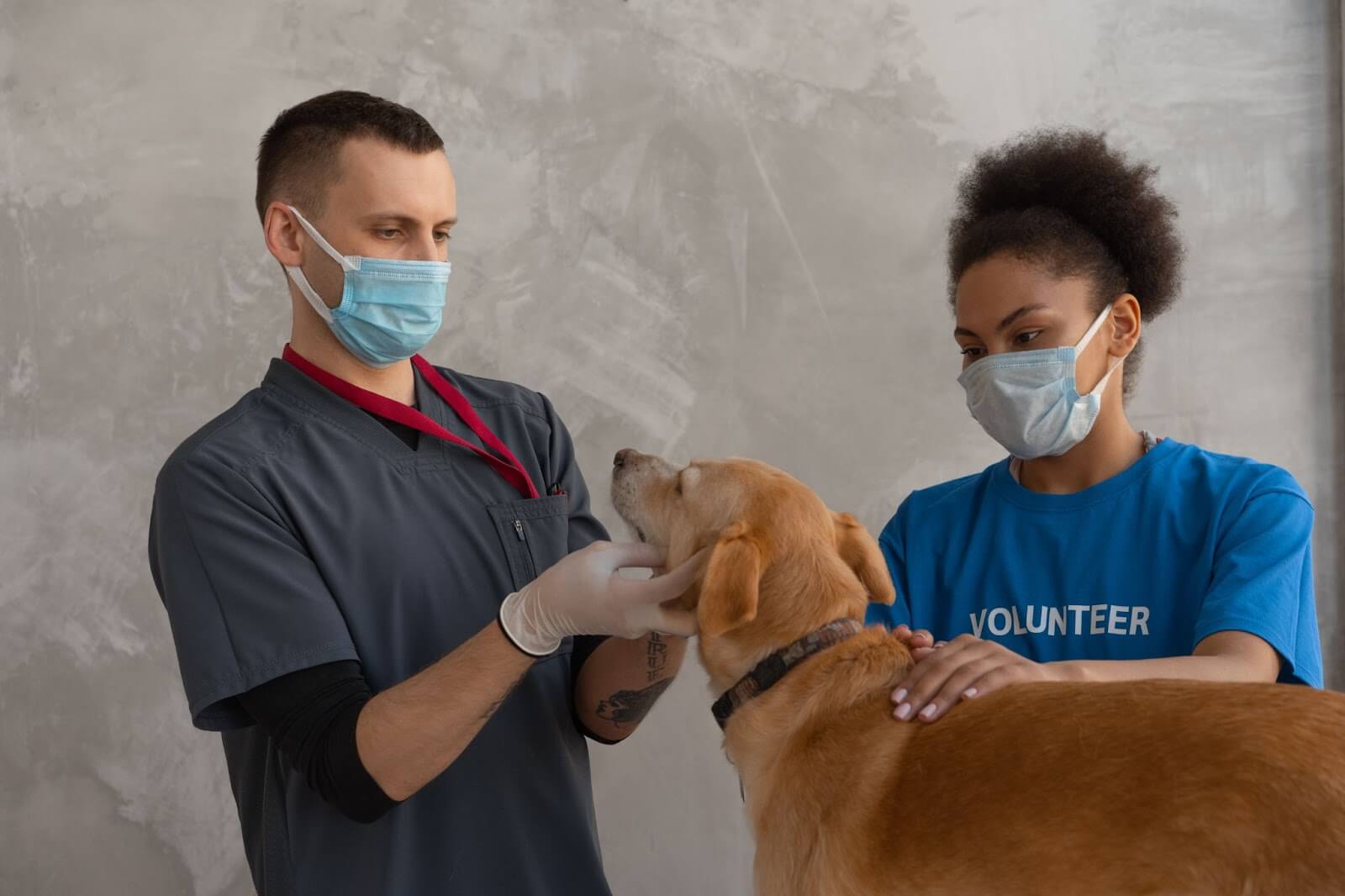One of the cutest things in the world is that little head cock your dog does when they are trying to figure out what you’re saying. It’s a gesture that just wouldn’t be the same without their precious ears. Whether they are big and upright, short and droopy, or a little bit of both, there really is no understating the importance (and adorableness) of dog ears.
Keeping those ears clean and free from issues is an essential part of being a pet owner, but it can also get confusing to know just what you should (and shouldn’t) be doing. To help you sort through all of the information out there, the crew here at WINPRO Pet compiled everything you need to care for your dog’s ears in one article. We’re here for you!
Common Issues That Can Impact Dog Ears
Your dog’s ears are one of the parts of the body that tends to have the widest variety of things that could be wrong with them. If you’ve ever watched your dog digging at their ears with their back paws, you know that the trigger is rarely blatantly obvious. It takes a little detective work (and usually a trip to the vet) to really diagnose and treat the problem.
However, having a little bit of a head start by knowing what the more common issues are can reduce the confusion so that you can get them back to that adorable snuggle pup you know and love.
Allergies
According to some veterinarians (including one who literally wrote the book on ear issues in small animals), allergies are the most common culprit of dog ear-related issues.
Of those, airborne allergens (like pollens and grasses) and food allergies trigger problems the most. If you notice your dog scratching more during allergy season (usually from April to September, depending on where you live) but seem fine during the rest of the year, they’re likely dealing with seasonal allergies. If the itching is nonstop, it’s more likely to be food related (but could still be an allergy issue).
Infections
Yes, your dog can get ear infections just like we can! If you’ve ever had one yourself, or had a kid who deals with them regularly, you know how painful they can be. Now, imagine you’re going through that with no way of knowing what’s happening and how it can be fixed! Because of the shape of dog ears, it’s easy for germs (mainly strains of staph) to get stuck in the middle ear, where it can grow out of control in a warm, moist environment.
Yeast Infections
Although we tend to think of yeast infections as something else entirely, dogs are actually prone to having yeast of their own… only in their ears!
In most cases, the yeast actually develops as a result of allergies, but not in the way you think. When your dog deals with allergies, a side effect is that their natural oils start to secrete onto the skin more than normal. Yeast thrives in the environment provided by the outer and middle ear, which is why they tend to be a recurrent issue.
Yeast also has a telltale smell that accompanies it, which you’ll get familiar with if the issue happens to your dog a lot.
Ear Mites
No discussion of the issues that impact dog ears would be complete without talking about the creepy crawly variety… namely, ear mites. There isn’t an issue on this list that can make their ears itch quite like mites can.
Not only are they annoying, they are also contagious to other animals in the house and even you! If you look into your dog’s ears and see debris that looks a lot like coffee grounds, it’s a good sign you may have ear mites on your hands.
Foreign Bodies
On rare occasions, the cause of itching with your dog’s ears can actually be related to a foreign body. This is more likely to be the case if you notice that they’re itching one ear specifically. Things like plant debris, a misplaced piece of dried ear wax or medicine, a bug, or even something placed in it by an unsupervised small child can be a problem, and will need to be manually removed by your vet. Don’t attempt to do it on your own at home.
What The Heck Can I Do About Issues With My Dog’s Ears?
All that itching and scratching can make you lose just as much sleep as your dog does. Because you love your pup so much (and your sleep, let’s face it), you’re probably wondering exactly what you can do to help stop all that itching and get back to normal life.
It really starts by scheduling a trip to your vet, which you hopefully have already established (if not, this is your sign to do it). While you can often help manage chronic ear issues at home, they have to first be diagnosed appropriately by your veterinarian.
You don’t want to use the wrong products, after all! Plus, if you use certain ear meds and your dog happens to have a burst eardrum, it can actually cause more problems than it solves. It’s really not worth the risk.
The treatment required to help get rid of ear issues directly relates to what is causing them in the first place, just like most other health issues. Ear mites, for instance, will be treated with specific medication, while bacterial and yeast infections will need other types. These are important distinctions, and ones that should be left to your vet to make.
Once you get your pet back into a normal state of health, follow up by making sure to reduce the risks of recurrence. Ask your vet for tips on how you can clean your dog's ears at home, and what products you should use to do it with. This is a great conversation for your dog’s annual wellness exam, where you can also discuss other issues like supplementation, nutrition, vaccination, and general care. Prevention really is so much better than having to treat issues, so keep an extra close eye on your dog’s ears even when they’re not showing issues.
For instance, if you take your pup down to the lake, or even just to get a bath, make sure that you clean their ears out immediately afterward. Not only is a lot of that water dirty and has its own bacteria, it can get trapped in their ear and create infections more quickly than you think. When cleaning the ear on your own, though, make sure that you don’t put anything in your dog’s ear canal… ever. Stick with cotton balls and not cotton swabs, as swabs can push debris and water even further into the ear. Ask your vet for recommendations on what ear cleaning product to use, too, instead of just choosing one off the shelf.
Healthy dog ears should not have an odor. Although it may seem strange, smelling your puppy's ears can help to identify an issue before it exacerbates. If you notice that your dog’s ear flap has started to look inflamed or swollen, you should take them to your veterinarian right away.
In any event, maintaining clean dog ears is vital to keeping them healthy and happy while preventing issues from arising down the road. Always avoid using harsh products like alcohol, vinegar or witch hazel, which can make a bubbly sound inside the ear and scare your dog. One thing to keep in mind when cleaning your dog’s ears is never to stick anything down into the ear canal. The rule of thumb is to only clean as far as you can see. In most cases, it's best to schedule an appointment with your veterinary dermatologist to thoroughly clean your dog's ear using a medicated ear cleanser. They may also send you off with a dog ear-cleaning solution which you can apply using cotton balls or rounds, rather than swabs and Q-tips. Nevertheless, make sure you use veterinary products as some ear medications have ingredients that are not suitable for canine ears like hydrogen peroxide among others.
Specific Ear Types of Common Dog Breeds
Ear infections are common conditions in dogs, especially those with floppy or drop ears such as Basset Hounds, Collie and Cocker Spaniels. Pointed ears that stand erect are called prick ears and are found on a German Shepherd or Siberian Husky to name a few. Because the inside of a dog’s ears is shaped differently than human ears, they have deeper canals allowing for better funneling of sound to enhance hearing.
In Conclusion
Dog ears can be just as adorable as they can be problematic. If your pup has been spending more time scratching at their ears than playing with their toys, it’s time to take action. Hopefully we’ve given you a little bit more confidence that you’ll know what to do if ear issues strike your dog, because WINPRO Pet is dedicated to making sure that your dog leads a happy, long life! You got this. Now give your pup a kiss from us.
Sources:
Small Animal Ear Diseases | ScienceDirect
Disorders of the Outer Ear in Dogs - Dog Owners | Merck Veterinary Manual (merckvetmanual.com)




